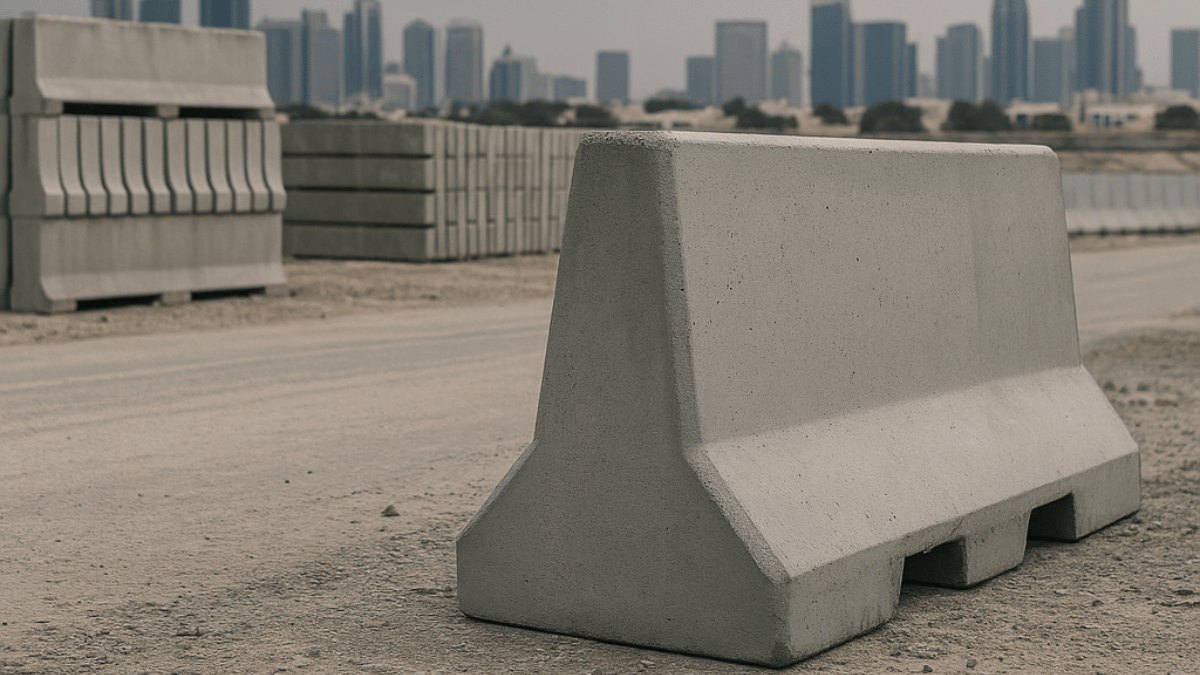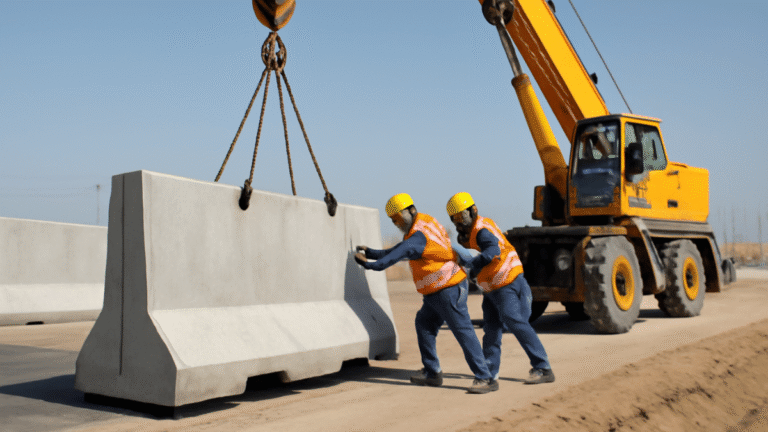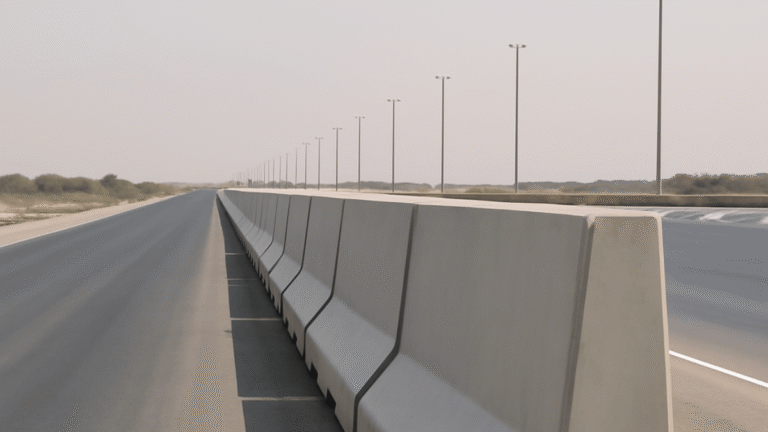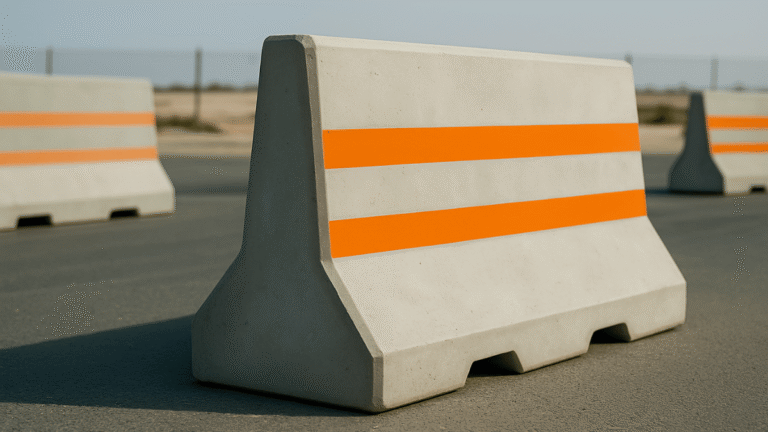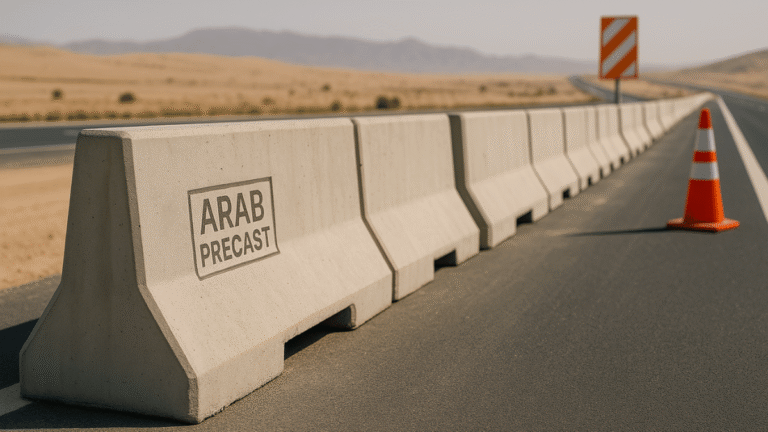Municipality Regulations For Concrete Barriers In Dubai & Abu Dhabi: What Contractors Need To Know
If you’re a contractor, site engineer, or project manager working in the UAE, you know one thing for certain: municipal approval is non-negotiable. Whether you’re building a highway in Abu Dhabi or securing a construction zone in Dubai, your concrete barriers must meet very specific local authority regulations.
In this guide, we break down the essential municipality regulations for precast and cast-in-place concrete barriers in Dubai and Abu Dhabi, the two most active construction zones in the country. We’ll also share key tips to avoid rejections, delays, or fines – and show how companies like Arab Precast help contractors stay compliant while saving time.
Why Municipality Regulations Matter
You can have the strongest, most precisely engineered barrier on site – but if it doesn’t follow municipal specifications, your project may be:
- Delayed
- Rejected during inspection
- Subject to fines or forced removal
- Excluded from future government tenders
Municipality regulations exist to:
- Standardize safety
- Ensure visibility and durability
- Maintain road and site aesthetics
- Prevent unsafe materials or faulty dimensions
Barrier Regulations in Dubai (RTA & DM)
In Dubai, two authorities typically regulate the use of concrete barriers:
1. Roads and Transport Authority (RTA)
Responsible for:
- Permanent barriers along highways, roads, and bridges
- Approving design specs and drawings for road safety applications
- Requiring crash test compliance (where applicable)
2. Dubai Municipality (DM)
Oversees:
- Temporary concrete barriers used at construction sites
- Public safety zones near developments
- Aesthetic and surface finish requirements
Key Dubai RTA/DM Requirements:
| Spec | Requirement |
|---|---|
| Height | 800 mm to 1200 mm depending on use |
| Length | Standard 3 m or modular design |
| Base Width | 600 mm minimum for stability |
| Surface Finish | Smooth, painted (white/yellow/black) for visibility |
| Reflectors | Mandatory for barriers near roadways |
| Interlocking | Required for long-span installations |
| Certification | Engineering drawings + precast strength test reports |
🔧 Arab Precast provides RTA-approved standard designs, as well as custom solutions for Dubai developers and contractors.
Barrier Regulations in Abu Dhabi (DMT)
In Abu Dhabi, The Department of Municipalities and Transport (DMT) governs infrastructure and urban safety regulations.
Key DMT Responsibilities:
- Overseeing traffic safety infrastructure
- Approving barrier types used for road upgrades, civil works, and urban sites
- Inspecting project sites for regulation compliance
- Approving both precast and cast-in-place concrete solutions
Common DMT Requirements:
| Requirement | Description |
|---|---|
| Barrier Type | Jersey, single slope, interlocking, bin blocks |
| Concrete Strength | Minimum Grade 40 reinforced concrete |
| Surface | Clean finish, no visible cracks |
| Mobility | Barriers must be crane- or forklift-compatible |
| Identification | Barriers should carry supplier mark + batch ID |
| Documentation | Load tests, mix design approvals, QA reports |
💡 We’ve supported clients with pre-approved barrier designs and full documentation packs ready for DMT submission.
Municipality-Approved Barrier Types
Here are the most common barrier types accepted in both Emirates:
- Jersey Barriers (Precast)
- Highway and expressway divider
- Crash-rated and interlocking
- Single Slope Concrete Barriers
- Urban roads and turning points
- Easy stacking and transport
- Interlocking Concrete Barriers
- Construction zones or logistics areas
- Prevent shifting, ideal for long runs
- Bin Blocks
- Utility separation, flood control, or material storage
- Often used in DM-approved civil projects
- Custom-Fabricated Reinforced Barriers
- For projects with unique height/load requirements
- Requires prior submission and approval
What Documents Are Required for Barrier Approval?
Both Dubai and Abu Dhabi municipalities typically request:
- 📄 Engineering drawings
- 🧪 Concrete mix design certificates
- 📷 Product photos (before/after delivery)
- 🛠️ Installation method statement
- 🧾 Product batch IDs
- 🧰 Quality control & test reports (compressive strength, rebar)
At Arab Precast, we pre-package these documents and submit them directly to municipality engineers upon request — speeding up approvals.
Common Mistakes That Delay Approval
Avoid these costly errors:
- ❌ Using non-standard dimensions
- ❌ Missing reflectors or paint stripes on road-facing units
- ❌ No lifting hooks for crane handling
- ❌ Lack of surface finish (raw concrete = automatic rejection)
- ❌ No supplier ID or documentation on batch
Tip: Always work with a supplier who has municipality experience and offers full technical compliance documents – not just delivery.
Case Study: Successful Barrier Approval in Dubai Silicon Oasis
A recent contractor working in Dubai Silicon Oasis required 300 meters of temporary safety barriers for a roadside infrastructure upgrade.
Arab Precast:
- Delivered RTA-approved interlocking barriers within 3 days
- Provided engineering drawings, lifting certifications, and site layout
- Coordinated with municipality engineers for on-site inspection
- Got project greenlit in less than 48 hours
Speed, compliance, and paperwork made all the difference.
FAQs – Municipality Barrier Rules in UAE
Do I need RTA approval for barriers on internal roads in Dubai?
Yes, if the barriers face public access or roadways, even internal roads require RTA or DM compliance.
Can I submit my own barrier design for municipality approval?
Yes, but it must be supported by structural drawings, load tests, and certification. We can help with this process.
Do Abu Dhabi authorities accept used barriers?
Sometimes. If used barriers meet the surface finish, ID, and test criteria, DMT may approve them. We offer certified used barrier stock.
How long does municipality approval take?
With the right documents and supplier coordination, approval can happen in 1–3 business days.

